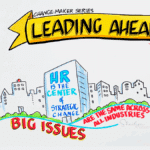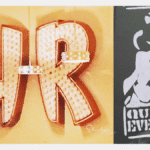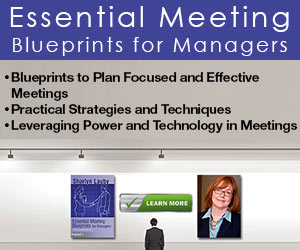The weather is turning warmer where I live in South Florida. Soon, we will have 90 degree temps and unbearable humidity. With that, comes constant conversation about dress code. What’s appropriate and what’s not. As HR managers, we have to weigh in on sleeveless shirts, sandals and panty hose.
This annual barrage of decisions begs the question: What should be the purpose of having a dress code policy? Several of my favorite bloggers have pondered dress code policies. You can see their thoughts here, here, and here.
I have to admit that, early in my career, I was one of those HR folks who thought you needed to wear a suit to work each day. It just seemed more professional. And on an interview…it was a must. But my attitude about work attire has changed over the years…and for several reasons.
Job Responsibility. If a job requires that a person will wear a uniform, why does it matter what they wear to the interview? As long as whatever they wear is clean…that’s all that counts. You know they will come to work clean (and wear whatever uniform you give them.) Another example is Mr. Bartender who worked for a telemarketer at one point in his career. They required dress shirts and ties . . to talk on the phone. Huh?? Sure, I know, project a professional image through the phone yadda, yadda. There are other ways to accomplish the same thing.
Cost. Let’s face it, suits are expensive to buy and maintain. A lot of casual attire doesn’t need to be dry cleaned and still looks good. So during a period in time when we all need a break on expenses, casual attire just makes sense.
Polish. You can wear a nice pair of jeans with an ironed shirt and look sharper than a person in a wrinkled suit. Nuf said.
Want to give your employees a benefit that puts money back in their pocket? Change the dress code. The goal of a dress code policy should be for everyone to be safe and look presentable (translated: professional.) I think it’s time we give our dress code policies more than a little casual thought.







Carmen Miller says
I like your way of thinking, as I sit here sleeveless, hoseless and sandals. I do know I’m in professional environment and I carry myself as such. As Eryka Badu would say “I am not my clothes”…
adowling says
If only I could get our directors to think like this. We do, on rare occasions, have clients onsite but its scheduled visits. This is their reasoning for business casual. I find employees to be far more productive if they are comfortable in their clothing, jeans or in the case of some of our offices, scrubs.
laurie ruettimann says
I’m always amazed at the hostility I receive when I have a conversation about ‘dress codes’ with an employee. I’m like, “I’m doing you a favor. If your boss has this conversation with you, you’re in trouble.”
I know in some offices it would be the other way around, but in my line of Human Resources, the first conversation you have with me is an act of grace. Don’t make me tell you twice.
Lois Melbourne says
I love the sound of flip flops in our office. It reminds me that my employees are happier here and more comfortable then they would be working somewhere else.
Ask a Manager says
We’re business casual and people LOVE it. The reaction I get from new hires when I tell them our dress code is often one of extreme excitement — I’ve had new hires who have been totally buttoned up throughout the hiring process complete let down their guard and scream with delight when I tell them we’re business casual. Don’t underestimate how much people see it as a benefit.
Of course, it’s not enough for me. I want to wear fleecy lounge pants to work.
Randall Elkan says
Okay, time to play the “devils advocate”. In today’s society, where the young people have no clue on how to dress professionally, now you want to “dumb down” the dress code?
It’s always amazing to me what people think is “business casual”, which I believe should be the attire for non-sales positions. This doesn’t mean blue jeans or for that matter mini skirts/shorts. Nobody wants to see your hairy legs!
When it comes to “Marketing/Sales” personnel, “dress like your clients” is my business approach.
Corporate Daycare says
I commented on this on my blog as well. While ideally I like the idea of an office going business casual, there seems to be a broad interpretation of what is “casual” and this tends to be most dependant on which department the person works in.
On those rare occasions when we have a client visit that coincides with “dress down Friday”, there is practically a revolt from the employees when we advise them to maintain the business casual attire for that day. It is no longer a perq, but an entitlement.
So much time is spent working on and around this subject.
Michael VanDervort says
Hi Sharlyn
I hate dress codes. When I worked at a company HQed in Minnesota, we spent an entire staff debating whether it was appropriate for women to wear capri pants and culottes to the office in the summer (which in Minnesota last about a week and a half!)
It was ultimately decided: no – they aren’t professional enough.
I see them all the time now at my Florida based, ultra conservative employer.
For me: my life goal is not to wear long pants between Memorial Day and Labor Day. Until I get there, it is “Business Casual- FTW”!
Margaret Murphy says
1st – full disclosure – I work out of home office 30% of the time and couture ranges from pajamas to sweats. However, when I am with a client I really don’t want to see anyone’s feet, thighs, toes or pits – nor do I want to show my own.
2nd – if you look at the talk shows / new shows you will see men in suits and women in stilettoes, bare arms, low necklines and skirts up to there – and that’s just the women over 50. Do I really need to ask what the ramifications of that disparity are? Whether we acknowledge it or not, the way we dress distracts, reinforces or enhances. Period. The way you dress sends a strong signal. To steal from the HR Bartender: dress responsibly.
Marie Adams says
As another SoFla native, I have to agree with you on this one. It gets hot down here, really hot… not to mention the humidity. If you don’t have to meet with clients or vendors, you shouldn’t have to dress like you are.
My office is usually casual during the summer months and most of us love it. Unfortunately, HR still needs to send out a notice to employees reviewing what is/isn’t appropriate to wear in the office. Still, I think it’s possible to dress casual and be professional at the same time.
hr bartender says
Thanks to everyone for weighing in on this post. It’s great to see all of the opinions and insight. I’m sure everyone has a ‘dress code’ story…keep the good stories coming.
To toss out my two-cents about inappropriate attire. I’ve always felt that inappropriate is inappropriate. Period. It’s how you define inappropriate that seems to create the buzz in the workplace. Some people say a polo shirt or capris are inappropriate. Sure enough, someone else says they’re not. My thought is that risqué attire is inappropriate for work (unless of course you work in the ‘adult’ industry.)
Should sales positions have to wear suits when visiting clients? Part of me likes Randall’s comment to “dress like your clients”. But then, if your clients wear jeans and polo shirts to work, will a company allow their sales people to do the same? I’d like to think so…
But I must say that Margaret made my day with the “dress responsibly” remark! I might have to use that one in the future…
Shannon says
Every business is different. Dress code should be determined by the individual company, amount of client visibility, and the amount of professionalism they would like to show.
LPJEFE says
AAAAUUUUUGGGGGHHHH!!!! The topic from HELL! We were just discussing this today and I still can’t believe we still have to remind people how to dress.
My feeling is that there is Business Casual and there is Casual Casual and if you don’t know the difference between the two I probably don’t want you working here. It’s about respecting yourself, others and the company you work for to not look like you just rolled out of bed, are going to the beach or going to the club.
Gabrielle says
They are exactly right cause when school starts it loke so hottt! So Us Kids Shouldnt have dress codes!
cytaylor says
I know I am way late on commenting to this blog post, but I just discovered you through another source. However, I can’t help but to applaud you for the comments about dress codes. Tip #3 (polish) is the very same rationale I tried to explain to a conservative healthcare organization about four months ago but the CEO insisted the employees had to dress everyday the same way he imagined the members were dressing at their respective hospitals and health systems. I knew his explanation had holes in it when I attended the organization’s annual 4-day event where staff members were dressed in nicely pressed khaki’s and polo shirts. I thought, “Why can’t we dress similarly all year round?”
Thanks a lot for your insights.
hr bartender says
Never too late to comment! Dress codes are a continuous source of conversation. Thanks.
Suzy Q says
Wow! For HR just to address a dress code would be a significant start. Granted, a fabrication shop gets a bit toasty in the warmer months, but when you have 50 year old women dressed in Harley Davidson tank tops and tight fittin’ black jeans, I’m not sure if that is to keep ’em cool or keep ’em hot! The tacky factor also sets in……
Life Coach Lynn says
I have been reading through your site and enjoying your posts, and I find myself drawn to comment on this one!
I have invested 20 years into an industry where I have dealt one on one with coaching clients, in small groups, all the way to speaking to groups of thousands…and all obviously require a different dress code!
Firstly, I know that the more comfortable I am, the more productive I am! So even when choosing “full blown” standard business attire, comfort is a big factor!
Part of the professional training that I chose to do for myself every few years was a “Dress For Success” type weekend…learning what the current trends in business dress code, etc.
What I learned is that there are ways to dress casually that can still create the impression one would desire, yet many people do not understand what they are.
I think everyone would benefit from some kind of tutorial, course, or even just pick up a book…if employers knew that a “casual” dress code would still have parameters that people understood, I think it would be more wide spread!
Cheers!
Sharlyn Lauby says
Thanks for the comment Lynn. I like your idea of taking a regular seminar on workplace attire. I haven’t done that in ages…
Wolf Halton says
Dress = Costume.
In public-facing positions, your wearing a tie, or a conservative professional outfit, makes customers automagically trust you more. It is not 100% perfect, but nearly so. When I worked in a dog kennel, as general manager, I often had to do some dirty jobs. If you are careful, you can clean a dog kennel in a suit and tie with a white shirt, and not get your clothes dirty. I gave my customers the idea that my place was clean because I rarely wore jeans. Most of my employees had the idea of dirty job = rough clothes. This meant they got a lot dirtier than I did, even though we were often doing the same job side by side. My only dress code at the kennel was “no clothing advertising somebody else’s products or services.” Most people wore plain t-shirts and jeans.
When I worked as a contracting millwright, I wore jeans and t-shirt, as I couldn’t find a way to stay clean in a papermill environment. No dress code there, except safety-related rules. No flowwing clothing, as it could lead to your being fed through a printing press, or other machinery; steel-toed boots; ear and eye protection…
Lindsay says
Jeans, all the way! I work better, produce better when I am comfortable!
Sharlyn Lauby says
I’m with you…jeans! Thanks for the comment Lindsay.
kris says
Perhaps it’s time to reconsider dress codes, especially in light of global warming and economics. If suits were not requires, office thermostats could be set a few degrees warmer in summer, thus saving firms big $ and contributing less to CO2 emissions. You also make a good point regarding cleaning costs–it’s more than $20 to get a suit cleaned, and silk blouses cost more to dry clean than their purchase price. The main reason, though, to reconsider dress codes is productivity. If people are hired for their knowledge work and ability to solve problems, why on earth does this require them to wear makeup, pantyhose, heels and tight, uncomfortable suits? It’s instructive to see the scientists interviewed on NatGeo or PBS–they wear jeans, t-shirts, sandals and no makeup. Production work should emphasize safety and comfort. Since when does a suit guarantee trustworthiness?
Sharlyn Lauby says
I agree that global climate change and economics are starting to factor into dress code. I’ve been thinking for awhile about writing another post on work attire. You’ve given me the incentive to do it. Thanks!
iris n. says
Ah, restrictive dress codes Vs freedom to wear what we wish! I wanted to add a different perspective to this thread. In Japan, a dress code is very strictly enforced within the workpalce. They are all expected to purchase and keep their uniform in good condition. They are expected to look good, and that even includes their makeup. Although my aunt is a Japanese citizen, even she was getting annoyed because she was “advised” by her superior to take better care of herself and to put on some makeup when she comes in to work. This does not mean, however, that she dressed sloppily to work. She always dressed in her uniform, nicely pressed, with heels and pantyhose. But, they also wanted her to wear some light makeup.
Now, consider physicians and their dress code. Many studies have been published, that show that patients respect physicians who are dressed appropriately, in a suit and white coat. A physician’s skill has nothing to do with the way he/she dresses. Some of the most skilled of the physicians may choose to dress “relaxed” because he/she feels that he/she does not have to prove themselves by the way they dress… but would we really trust a physician who comes to see us dressed in jeans and t-shirt?
The third point I wanted to mention was that there are many individuals who dress “inappropriately” not because they want to, but its because they do not know what is appropriate or not. There are so many different types of cuts/slits/shapes in clothes, that one little mistake, and the slit could be too high or the shape could be too clingy or any other mistake. Everyone wants to show their individuality and work their fashion, but sometimes the appropriate clothes (with the style you want) is just not available! Personally, if I had my way, I would request that my employees wear a fashionable uniform (with various styles/patterns/combinations) that they can choose from.That way, they can exercise their individuality, while also putting some form of control over their attire.
Donna says
I couldn’t agree more with the need to really take a look at dress code, i.e., what is acceptable and unacceptable in the workplace? In most office environments, I would agree that some of the rules need to be tossed. Actually, among the office personnel in the hospital in which I work, I believe the rules have been tossed, which overall is positive. I do have to mention that I am still wondering when it became okay for professional women to wear low cut blouses, which would look great after 5pm at Happy Hour, but seem a bit less than professional in my estimation? As a nurse, I am less affected by dress code than other professionals, however, what is seen in the hospital environment is a far cry from what was taught in nursing school (and I have only been a nurse for 6 years, so I’m not talking ancient history…). As nursing students we were taught that simple jewelry, clear finger-nail polish (if any), and strict adherence to the facility uniform policy was a must. In my workplace, it’s not unusual to see nurses with loud, colorful finger-nail polish on their latex nails (an infection control nightmare), large dangling earrings, tight, short, clingy tops, exposing tatoos, etc. I understand the need for personal expression, but feel like departure from the dress code, in the health care environment results in appearances that are less than professional. I’m just saying…
Weetchy says
I am in full agreement to the article. In our offices, we have some laid back managers and some dress code Nazi’s. We never see any outside clients’ because all of our visitors are co-workers from other offices or family members. Why should it matter if I wear nice dress Capri’s, a tasteful top, and sandals? We have a manager in particular who requires all pants to be creased, starched, and cannot have pockets on the back. You can only wear closed toe shoes which do not make any noise when you walk and ladies tops cannot dip lower than your collar bone. We work for a large, multinational oil and gas company, not a convent. I’m not saying that it is ok to let your cleavage hangout for all to see, but in style fashions that are nice and professional should be allowed. I also understand the need for a clean professional appearance but do dress codes really need to be so strict that the only options we have are a black shroud and head dress?
Sharlyn Lauby says
I love that the discussion about dress code continues.
With reports that the cost of clothing is expected to increase in 2011, companies need to consider opting for a practical approach employees can afford.